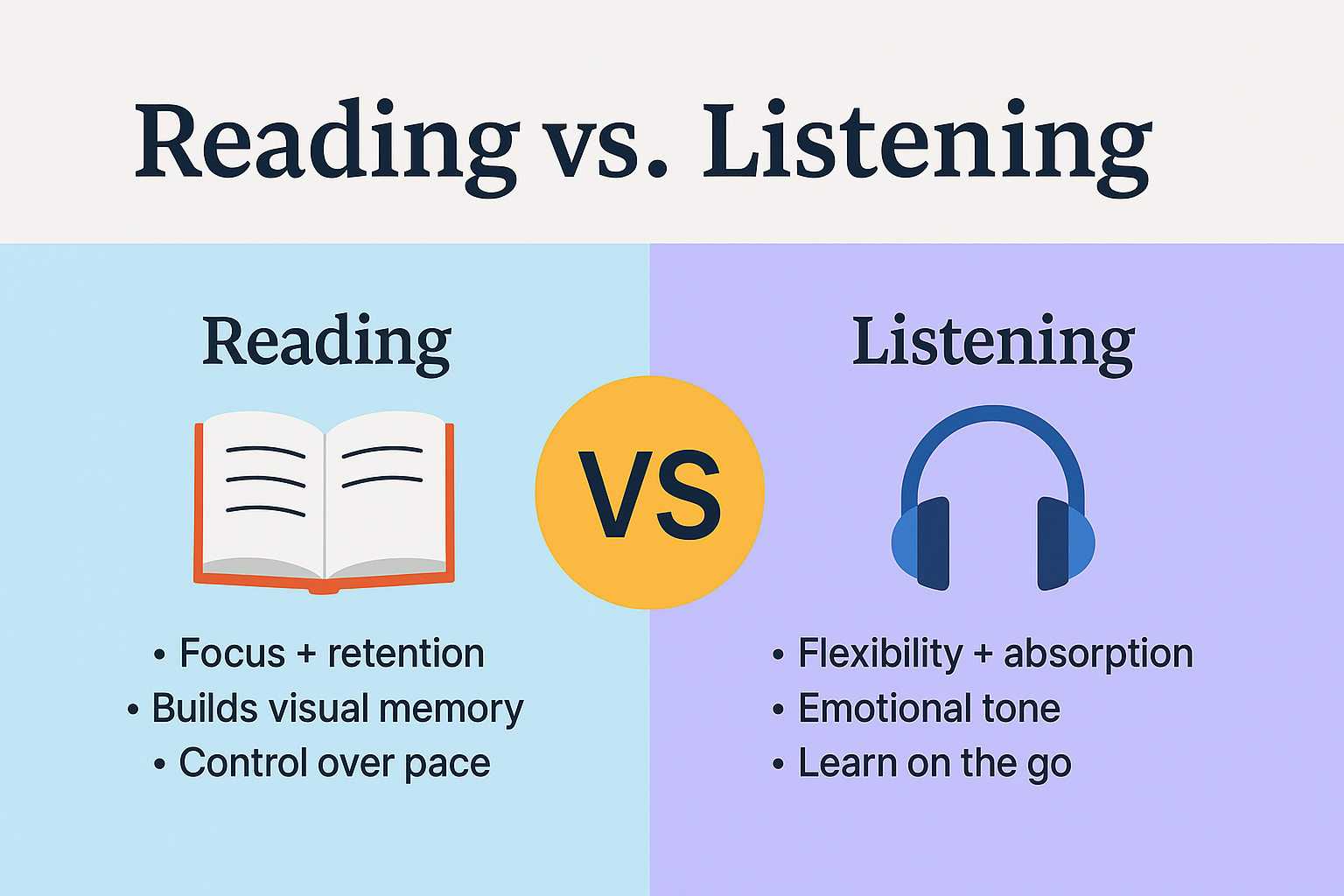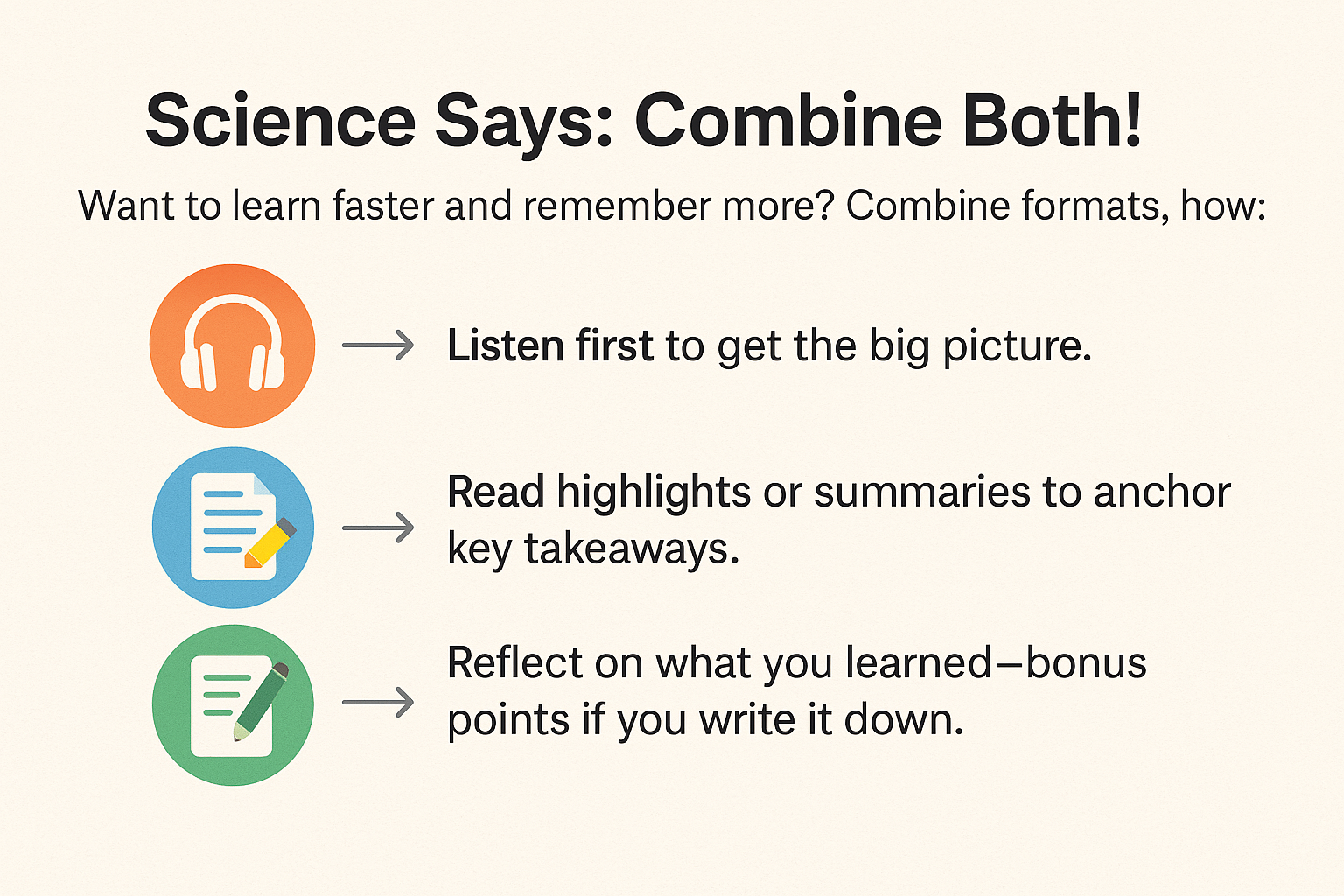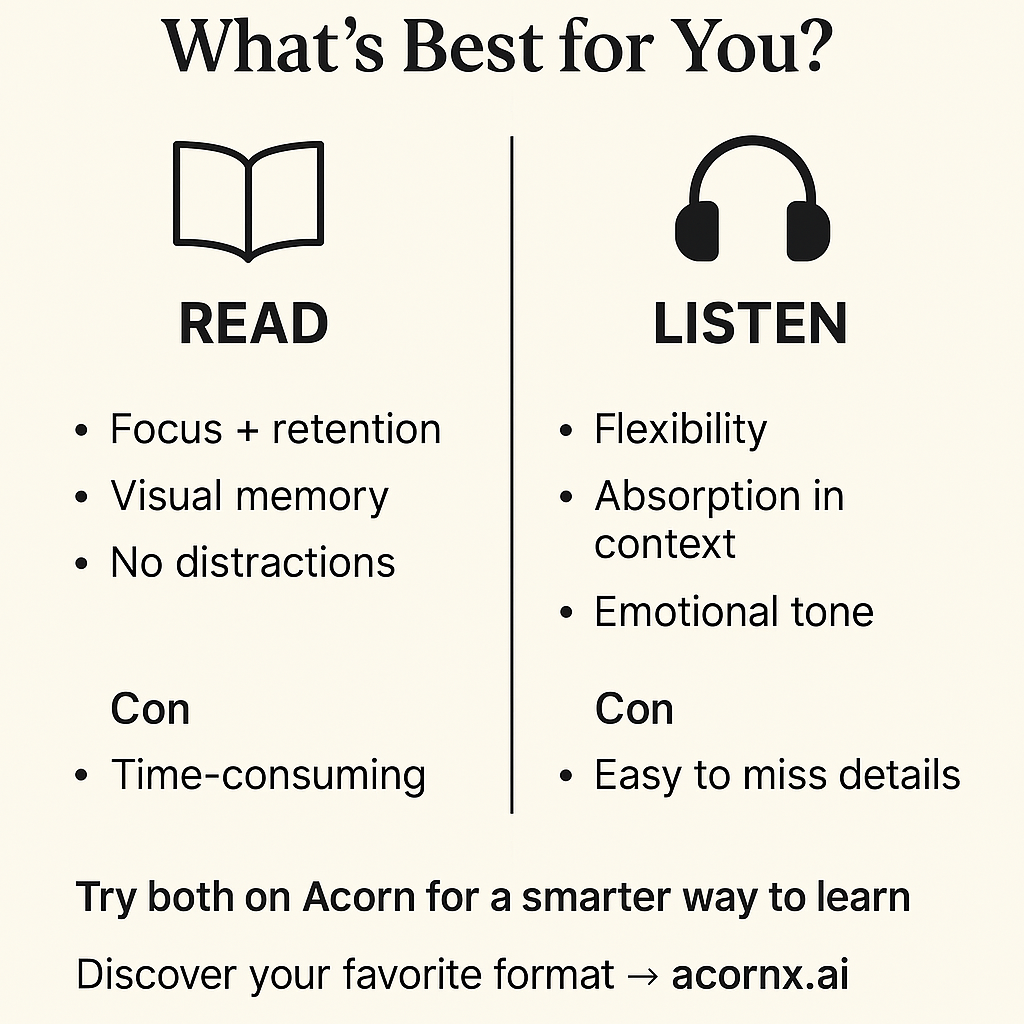In an age of multitasking and digital fatigue, choosing how to consume knowledge matters just as much as what we consume.
Maybe you’ve asked yourself:
- Should I sit down with a book—or hit play on a podcast?
- Do I retain more by reading, or is listening actually better for me?
- Am I wasting time doing it the “wrong” way?
Let’s explore what the science says, what the real-life experience feels like—and how you can get the best of both.

📚 Reading: The Power of Focus + Visual Memory
When you read a book:
- You control the pace.
- You’re more likely to engage in deep concentration.
- Studies show reading activates the visual cortex, enhancing detail retention.
According to cognitive research, reading also builds stronger memory anchors—because you’re engaging both decoding and comprehension at once.
“Reading helps you learn how to think,” says neuroscientist Maryanne Wolf.
“Listening teaches you what to think—but less about how to think through complexity.”
🎧 Listening: Flexibility + Absorption in Real Life
But don’t count listening out. Listening to books or podcasts offers:
- 🎧 Convenience: Learn while walking, cooking, commuting.
- 🎙️ Emotional tone: Hear the author’s voice, tone, rhythm.
- 🌊 Immersion: Audiobooks create a vivid, sensory experience.
💡 In fact, studies suggest that story retention is nearly the same across audio and print—what matters is your level of attention while consuming it.
🧩 Know Yourself First: What Type of Learner Are You?
| Learner Type | Best Medium | Try This on Acorn | |——————-|—————————————-|————————————-| | Visual Thinker | Reading (summaries, highlights) | 5-min Book Briefs | | Auditory Learner | Listening (audio summaries, podcasts) | Acorn Audio Deepdives | | Hybrid Learner | Read + Listen for full effect | Start with audio, follow with notes |
🧠 Science Says: Combine Both to Learn Faster!
Here’s how high-performing learners do it:
- Listen first to get the big picture.
- Read highlights or summaries to anchor key takeaways.
- Reflect on what you learned—bonus points if you write it down.
 🎯 That’s exactly how Acorn is built: bite-sized audio + key quotes + reflection prompts.
🎯 That’s exactly how Acorn is built: bite-sized audio + key quotes + reflection prompts.
🎧 Why Acorn Combines Reading and Listening
At Acorn, we tested how users engage with learning:
- Audio users finished 35% more content than readers alone.
- Hybrid users showed 48% more reflection engagement than either group.
Our content pairs the best of both:
- 🎧 Start with a 5-minute audio
- ✍️ Follow up with a written quote or key concept
- 💭 Finish with a thought-provoking question That’s how ideas stick.
Final Takeaway: Read, Listen, or Blend?
At the end of the day, the “right” format is the one you’ll actually use.
Make learning feel natural. Fit it into your life—not the other way around.
Whether you’re reading on a quiet morning or listening on a noisy train, wisdom comes from reflection, not just consumption.

🚀 Try Both on Acorn Today
Explore a book in audio, highlight key quotes, and grow smarter—your way.
👉 Start your hybrid journey now → https://acornx.ai
You May Want to Ask…
Q: I love reading, but I never finish long books. What do I do?
A: Try short-form summaries first to decide if the book’s worth your time—Acorn gives you the signal without the noise.
Q: Can I learn deeply from audio alone?
A: Yes—especially if you reflect afterward. Pairing it with writing or a recap helps cement the insight.
Q: Will switching between formats confuse me?
A: Not if you stay consistent with topics. In fact, combining formats actually enhances memory by using different brain pathways.